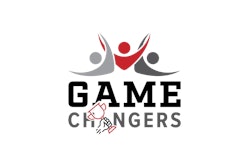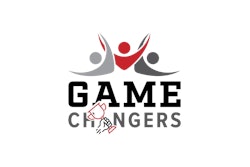Copyright 2017 Southeastern Newspapers Corporation
All Rights Reserved
The Augusta Chronicle (Georgia)
Dawn Staley basked in South Carolina's women's basketball national championship in the weeks that followed by wearing a "net-lace" the coach cut down to Gamecock Club events and a victory parade, but she went without it during the SEC spring meetings in Destin.
She's the most high-profile female head coach in a league where 34.2 percent of women's teams are coached by females. In the women's basketball meeting room, six of the 14 coaches are men.
"It's always a topic of conversation," Staley said. "Obviously, men are coming over to our game a lot more. It's a gift and it's a curse in that our game is so beautiful enough to attract men wanting to coach and the curse is they're pushing women's opportunities out. I just hope that when making the decision that ... whoever you hire is not based on gender, it's made on how you think you can move your program."
Georgia athletic director Greg McGarity's latest coaching hire was in gymnastics, where former All-American Courtney Kupets Carter was the choice to run a program with a national championship tradition.
That kept the number of female head coaches of Georgia women's sports teams to three of nine that are sanctioned by the NCAA (equestrian is not included). That's one more than when McGarity took over as athletic director in 2010.
The SEC's percentage of female head coaches is the second lowest in the power five conferences surveyed behind the Big 12's 32 percent, according to a June report on "Gender, Race & LGBT Inclusion of Head Coaches of Women's Teams" that coincided with the 45th anniversary of Title IX, the landmark federal law that prohibits sex discrimination.
The SEC was given a grade of "D" in the report. The Pac-12 at 46.7 percent and Big Ten at 46.4 percent had the highest percentage of the power five.
"We've talked about hiring over time, but those are decisions made independently by institutions," SEC commissioner Greg Sankey said. "You can compile those statistics, but those institutions are making decisions they think are the appropriate decisions, directions for their programs."
He points to success stories like Staley winning the national championship and softball sending three teams to the College World Series, two coached by women.
Tennessee and LSU led all SEC schools with 58.3 percent female coaches in women's sports and Vanderbilt, Arkansas, Missouri and Kentucky all were given grades of "F" with less than 25 percent, according to a separate report from earlier this year.
"Female coaches are underrepresented in the power five," said Nicole M. LaVoi, co-director of the Tucker Center for Research on Girls & Women in Sport. "That number has been very stagnant over the last 12 years."
Just over 40 percent of NCAA women's teams had a female head coach in 2016, according to the governing body. Females made up about 90 percent of women's college sport head coaches before Title IX.
"When I first started, there was never a man coaching women's golf," said Dianne Daley, entering her 30th season as women's golf coach at Wake Forest. "Now, I would say a quarter of the coaches at least."
Part of the reason, Daley said, is women's golf coaches' pay has grown more competitive, which makes the job more attractive.
While the numbers today are drastically different, LaVoi views it as "half-full" that the numbers haven't declined significantly for more than a decade.
"Why this is happening is a very complicated answer," she said. "There are a lot of factors - societally, culturally, organizationally - that have to do with men in position of power. ... The reason we have fewer women coaching, we have to be careful not to blame the women."
Research has shown, LaVoi said, that people like to hire those that are like themselves. All 14 of the SEC's athletic directors are men.
"It's called homologous reproduction," she said. "When you have mostly men as athletic directors, they like to hire people like themselves because it reflects their power."
LaVoi pushes back on some narratives for the lack of female coaches that include choices in career paths they take, that there aren't enough qualified women or they don't apply for jobs.
At the NCAA women's golf regional in May in Athens, 11 of the 16 head coaches were female.
Nationally, 81.3 percent of women's golf coaches in seven major conferences were female.
"I think it's something that occasionally gets talked about, but we have a lot of really good female coaches," said Kansas State coach Kristi Knight, president of the Women's Golf Coaches Association and the longest-tenured women's golf coach in the Big 12 at 22 years. "I'm a believer that there are a lot of really good men coaches out there. If I were an AD and I was going to go out there and pick a golf coach from a handful, a couple of them are men and a few of them are women. For me, it's not an issue, but it's something that's talked about."
In the NCAA women's tennis round of 16 in Athens in May, only five of the 16 coaches were female and nationally the number is 43.5 percent.
"It's going to be a real change here," said Vanderbilt coach Geoff Macdonald, entering his 24th season and a four-time SEC coach of the year. "There are so many good young women coaching. It's going to gradually change over to where it's probably the opposite."
Macdonald said he considers Vanderbilt associate coach Aleke Tsoubanos as a "co-coach," because all program decisions are made together.
"I believe she will take over when I retire in a few years," he said.
Read More of Today's AB Headlines
Subscribe to Our Daily E-Newsletter
Terms and Conditions Privacy Policy



































